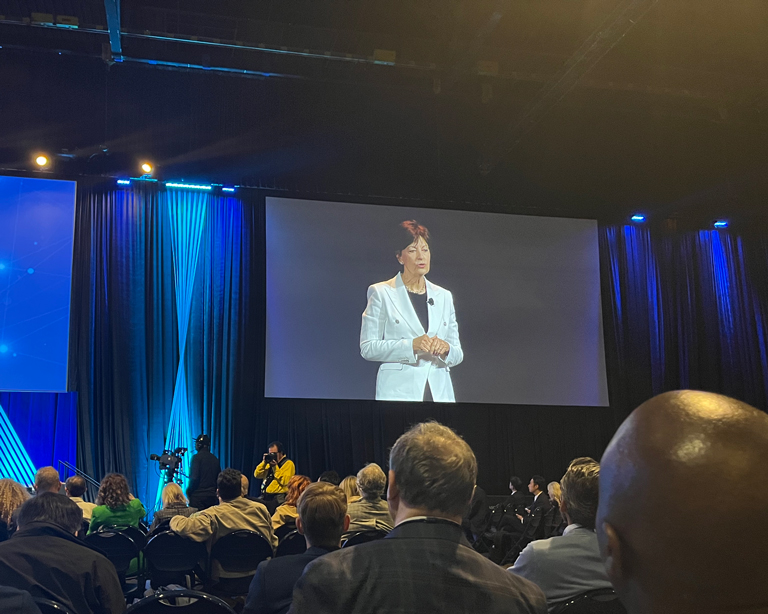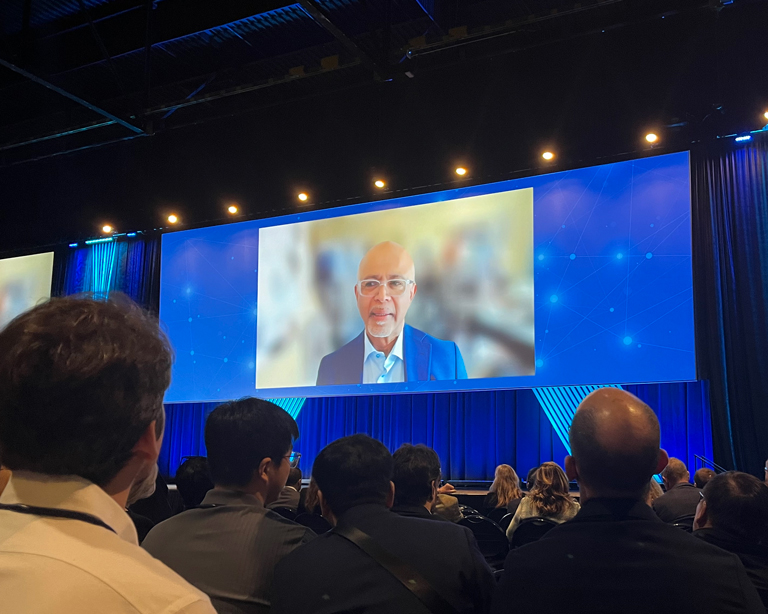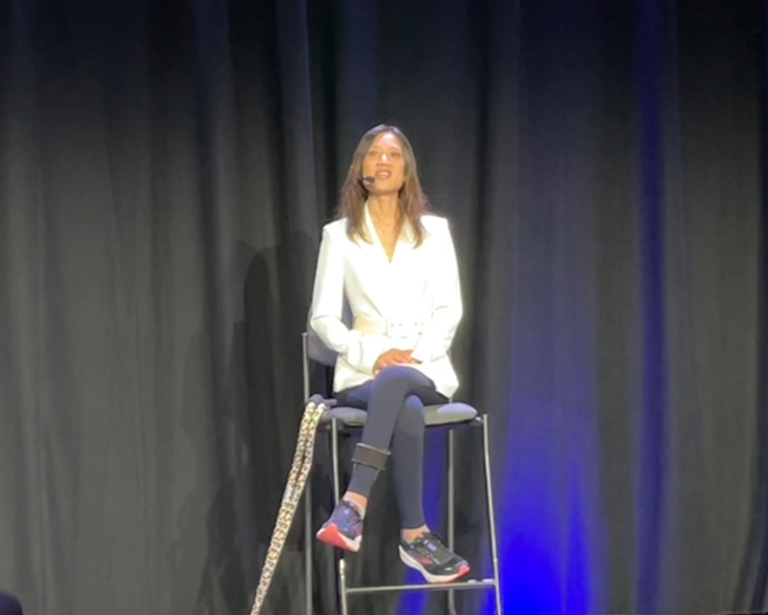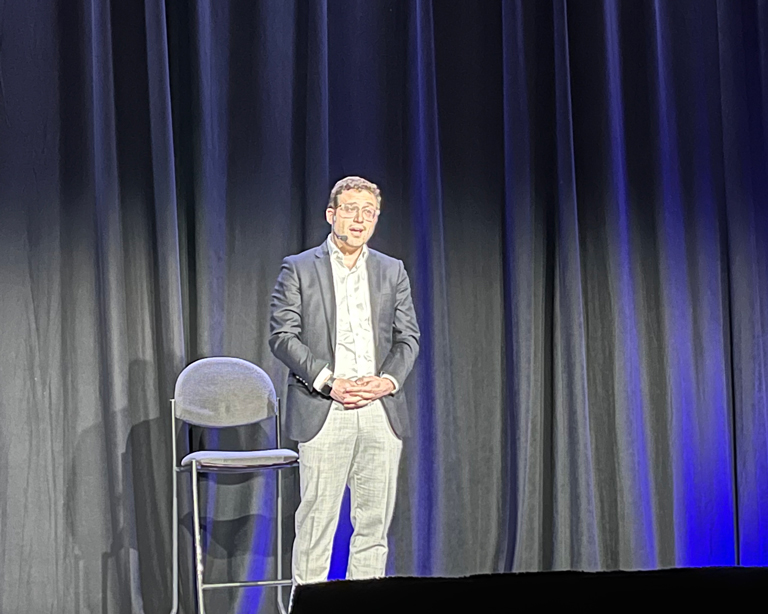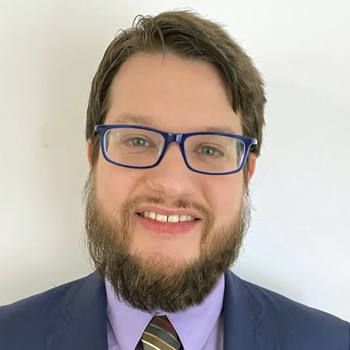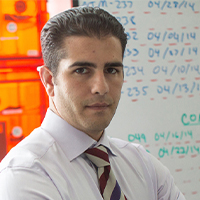At ASCO, a focus on cancer care as well as cure
At ASCO 2024, integrated palliative care was a presidential theme, as doctors and patients ruminated on the art and science of caring for the whole patient through the unique experience of cancer treatment.
As cancer doctors gathered in Chicago earlier this month for the ASCO annual conference, their focus was not only on the newest innovations in cancer care, but also looking back on how far the space has come. Cancers that once had bleak prognoses now have high survival rates and multiple treatment options.
ASCO President Dr Lynn Schuchter experienced this transformation in the space firsthand as a melanoma specialist.
“When I began my fellowship, people often asked why I chose melanoma,” she said in her opening address. “There were no treatments beyond surgery. Outcomes were bleak. In the early days, I was essentially a hospice doctor. But even then, there were clues from emerging science that suggested the potential and power of immunotherapy and targeted therapy directed at specific driver mutations. And indeed, gradually, over decades, laboratory and clinical researchers, many of you here today, translated this promising basic science into powerful therapies, turning what was once a treatment desert into a rainforest of options for our patients with melanoma.”
All photographs courtesy of Jonah Comstock
It’s a welcome change for doctors and patients. Yet, as more and more people survive cancer, what it means to care for a cancer patient changes. Palliative care, which was once synonymous with end-of-life care, now represents a treatment modality that can help every cancer patient live with the life-changing realities of diagnosis, treatment, and survivorship – or help them and their family face the end with comfort and dignity.
Schuchter shared that this is the first time in 25 years an ASCO presidential theme has focused on palliative care, but she believes now is the time to emphasise this important aspect of what oncologists do.
“What I’m advocating is a reemphasis on a fundamental concept in medicine. It dates back to Hippocrates, who said, ‘to cure sometimes, to relieve often, to comfort always, is all that may be reasonably expected of medicine.’ These words, to comfort always, tell us that whether or not we cure a disease or even succeed in relieving symptoms, comfort is not optional. It’s an essential part of patient care.”
Concrete progress at ASCO
The conference featured a number of compelling presentations on the importance of palliative care, from Schuchter’s address to keynote speaker Dr Abraham Verghese to the ASCO Voices session where patients and doctors shared deeply personal stories.
But the theme wasn’t only a matter of conference content. In May, ASCO updated its palliative care guidelines for the first time since 2016.
“Updated ASCO palliative care guidelines have just been published to emphasise the essential role of all oncologists in providing palliative care as an integrated, holistic part of treatment, beginning with diagnosis,” Schuchter stressed. “Let me I’ll say that again. Integrating palliative care early from the time of diagnosis is key.”
One of the plenary sessions at ASCO also focused on palliative care, specifically looking at virtual delivery of palliative care via telehealth. The study, which included a randomised sample of 1,250 patients with advanced lung cancer, showed that virtual palliative care was just as effective as in-person care, measuring quality of life, satisfaction with care, and patient mood.
All photographs courtesy of Jonah Comstock
“The main takeaway from this national multi-site randomised study is that palliative care led to equivalent benefits for patient-reported quality of life whether delivered via video or in-person visits among adults with advanced lung cancer,” study author Joseph Greer, PhD, of Massachusetts General Hospital, said in a press briefing. “The study findings underscore the potential to increase access to evidence-based early palliative care through telehealth delivery.”
Additionally, Schuchter shared that ASCO is working to increase the number of physicians dual-certified in palliative care and oncology, a number that now stands at only 3% to 4% of oncologists. A new pilot fellowship, led by Dr Jamie Von Roenn, graduated its first class last month.
Palliative care and living with cancer
Conversations about palliative care at the show fell into two buckets: palliative care’s traditional role as end-of-life care, and the growing understanding of palliative care as a holistic part of cancer care throughout treatment, including for survivors.
“Research indicates that early integration significantly improves patients’ quality of life, of well-being, and some studies suggest potential for longer survival times,” Schuchter said. “This tells me that patients on the road to cure need symptom palliation just as much as those with more advanced cancer.”
During the ASCO Voices session, Phuong Gallagher, a 17-year survivor of stage 4 rectal cancer, spoke earnestly about her own experience and how it showed her the importance of this care.
“When I was first diagnosed, there was suddenly this rush of information in front of me,” she said. “All these decisions that had to be made immediately, because I had to get into treatment. My doctors were focused on giving me the best chance I had at a cure and finding the best options for me. […] The problem was that all these things addressed the immediate of what was happening. It didn’t talk about what I would be living with years down the road. And now, as we have more and more patients living longer and longer, we have the opportunity to look at the different long-term effects that we have to deal with.”
Gallagher’s life has been impacted immensely by the long-term complications of her cancer.
All photographs courtesy of Jonah Comstock
“We didn’t talk about chemotherapy and how that could cause cognitive issues with chemo brain. We didn’t talk about surgery and how that would leave me with LARS syndrome, where I felt tied to the bathroom wherever I went, having to scope out immediately, ‘Where is the bathroom? How accessible is it? Can I get out of my seat fast enough to get there?’ And then the reversal of that with ostomy surgery and as a permanent ostomate, how that changed my ability to live my life and not have to be tied to the bathroom now. I could go on long trips and not worry. So that was a positive change. But we didn’t talk about that either,” she said.
Better communication earlier on might not have changed the treatment decisions she made or the outcomes of those treatments, Gallagher said. But it would have given her a chance to prepare for those realities and feel more in control of her treatment journey.
“Now that we have people who are living longer, we can talk about the effects of it and how to address it because quality of life is just as important as quantity of life,” she said.
Palliative care at the end of life
Several speakers at the show also talked about how important palliative care continues to be at the end of life.
“When I was a young physician, I was caught up in what I call the conceit of cure,” physician and author Dr Abraham Verghese said in his keynote address. “The sense that we could fix just about anything, and if we couldn’t, it was because people had come in too late.”
As an infectious disease doctor and not an oncologist, Verghese said, it was easier for him to keep up that illusion for a time – until the AIDS epidemic. But when a young patient’s mother called the office to report that he was too weak to come in, Verghese decided to pay the patient a visit at home.
“I drove out to where he lived in the country in a mobile home, and I was doing it for my own purposes,” he said. “Some sense of closure, if you like. When I got there, it was profound how powerful my visit was to the family, helping them come to terms with this, but especially on him, making him feel that I hadn’t quite abandoned him and that I was going to be on this journey with him. And I remember leaving the house and thinking, ‘This is what the horse and buggy doctors of hundreds of years ago did so well in the absence of all the cures we have now. When they could not cure, they could still heal.”
All photographs courtesy of Jonah Comstock
In the ASCO Voices session, Dr Richard Leiter, a palliative care physician at the Dana Farber Cancer Institute and Brigham and Women’s Hospital, told his own story about a young patient named Carlos, who died of kidney failure after a failed stem cell transplant for AML.
“I was a newly minted palliative care fellow just over a month into my training. I was progressing quickly, but, as happens with so many of us in medicine, my confidence set a few steps ahead of my skills,” he said.
To Leiter’s mind, Carlos’s mother was in denial of her son’s situation and he needed to get through to her.
“I don’t understand why this is happening. He was cured of his leukaemia. I hear you telling me his liver and his kidneys aren’t working, but I have hope, hope they’ll get better. He is going to get better,” the mother told Leiter in his retelling.
“‘I hope they will,’ I told her,” Leiter said. “I should have stopped there. But in my eagerness to show my attending and myself that I could handle this conversation on my own, I kept going, mistakenly. ‘But none of us think they will.’”
The mother reacted badly, accusing Leiter of wanting her son to die. His attending took over the case. But Leiter learned an important lesson about his role as a palliative care doctor.
“I could have acted as her guide, rather than as her cross-examiner,” he said. “And I could have hoped to ease Carlos’ suffering and genuinely hoped that he got better, even though I knew it was next to impossible. I know now that hope is a generous collaborator, and it can coexist with rising creatinine, failing livers, and fears about intubation. As clinicians, we can always find space to hope with our patients and their families if we look for it.”
About the author
Jonah Comstock is a veteran health tech and digital health reporter. In addition to covering the industry for nearly a decade through articles and podcasts, he is also an oft-seen face at digital health events and on digital health Twitter.
Supercharge your pharma insights: Sign up to pharmaphorum's newsletter for daily updates, weekly roundups, and in-depth analysis across all industry sectors.
Want to go deeper?
Continue your journey with these related reads from across pharmaphorum
Click on either of the images below for more articles from this edition of Deep Dive: Oncology 2024

